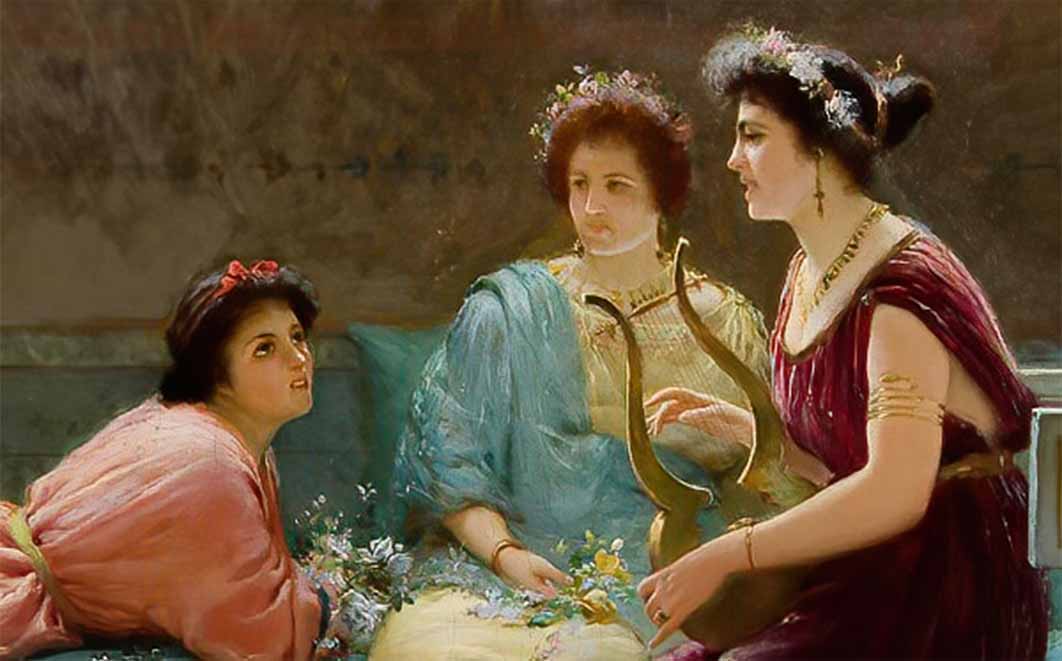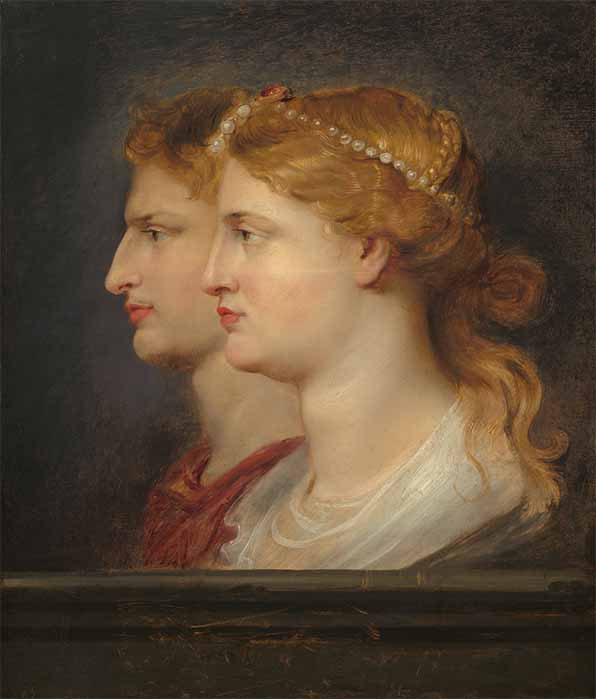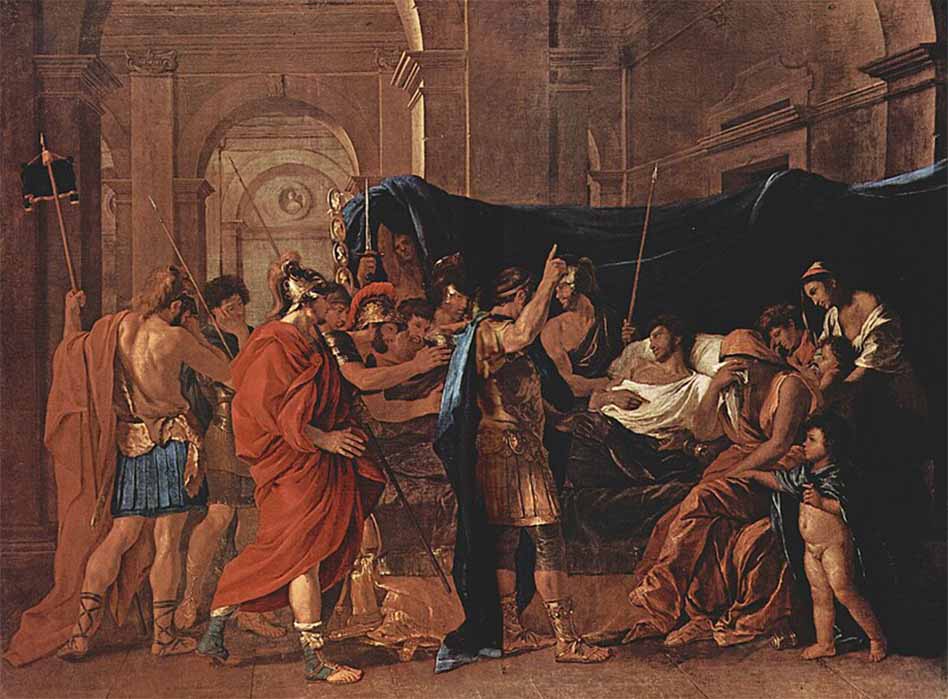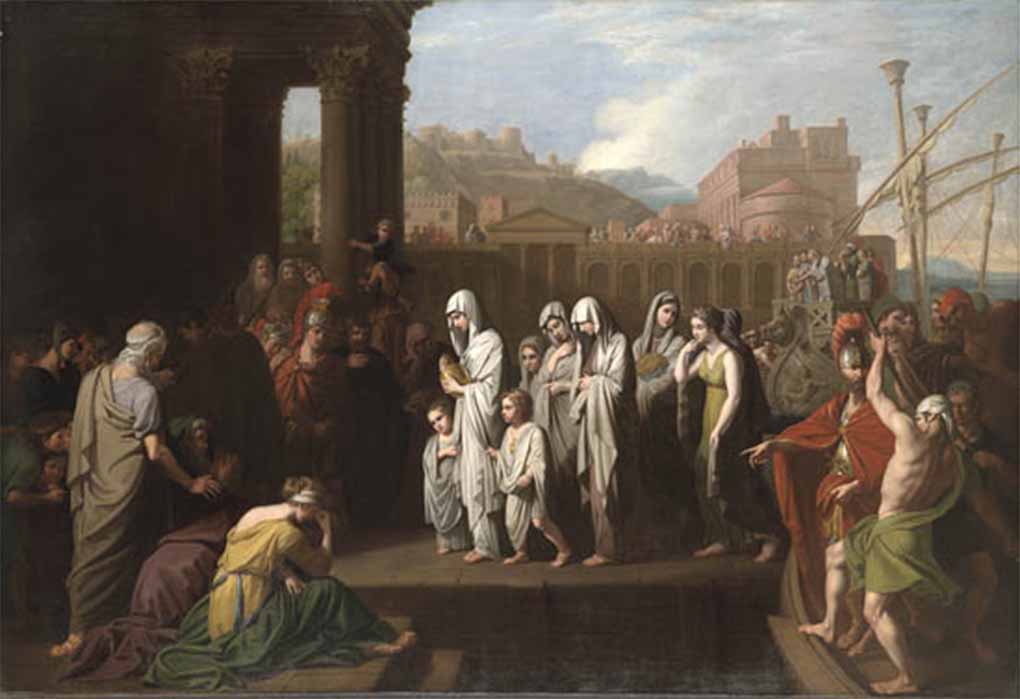
Three Daughters Of Saintly Germanicus And Sisters Of Decadent Caligula
At the height of the Roman Empire, Germanicus Julius Caesar was unanimously regarded as one of the greatest soldiers the Empire had ever produced. Ancestry was very important to the Romans and Germanicus had an impressive pedigree, as the son of Nero Claudius Drusus, who in turn was the son of Livia Drusilla (wife of Emperor Augustus) and the younger brother of eventual Emperor Tiberius. Antonia, the daughter of Mark Antony and Octavia (Emperor Augustus' sister), was Germanicus' mother. The agnomen Germanicus, the name which he was known for, was a hereditary name bestowed upon his father in recognition of his conquests in Germany.

Germanicus and Agrippina the Elder, by Peter Paul Rubens (1614) National Gallery of Art Andrew W. Mellon Fund (Public Domain)
Tiberius, Germanicus' paternal uncle who succeeded Augustus as the emperor of Rome a decade later, adopted Germanicus in 4 AD. It was understood that he would be his uncle's heir when the time came for him to be Emperor of Rome. This was Augustus' wish as Augustus had adopted Tiberius as part of the succession preparations on the condition that Tiberius should adopt Germanicus, thus putting him next in line after Tiberius. Also that same year, a marriage was arranged between Germanicus and Augustus' granddaughter Agripinna. Agrippina and their children were always by Germanicus' side when he held subordinate posts on the Danube frontier under Tiberius from 7 to 9 AD. The troops were immensely impressed by Germanicus' family's novel, although potentially perilous, arrangement. Of his nine children, only six of Germanicus' children reached adulthood: Nero Julius Caesar, Drusus Caesar, Gaius Caesar (the future Emperor Caligula), the future Empress Agrippina the Younger, Julia Drusilla, and Julia Livilla.

The death of Germanicus with his wife, Agrippina and their children on the right, by Nicolas Poussin (1627) (Public Domain)
Overall, Germanicus' career appears to be on an upward trajectory. He was elected consul for the first time in 12 AD, and a year later, he was named proconsul of Germania and the whole of Gaul. In Germania, from 14 to 16 AD, he commanded eight legions, nearly one-third of the Roman force at the time, in battles against Germanic tribes. In 17 AD, he returned to Rome to receive a triumph. All his children marched in their father's triumphant parade. In 18 AD, Germanicus was appointed co-consul, making him one of Rome's two most influential men, along with Emperor Tiberius himself. While in Asia Minor he came into conflict with the governor of Syria, Gnaeus Calpurnius Piso. During their feud, Germanicus became ill in Antioch and died on October 10, AD 19. His death has been attributed to poison by ancient sources, but that was never proven. Germanicus remained popular even after his death. For the Roman people, he was the Roman version of Alexander the Great, who died at the same age.

Agrippina, accompanied by the children, landing at Brundisium with the Ashes of Germanicus, by Benjamin West (1768) (Public Domain)
Children of Germanicus
Given Germanicus' accomplishments, it is somewhat unfortunate that Caligula, through his reputation as Rome's mad Emperor, eclipsed his father's popularity. Germanicus' three daughters were just as scandalous as their brother. But can one blame them? Despite their ancestral privileges, Germanicus' children grew up in an atmosphere of distrust and terror. Even in Germanicus' lifetime, Emperor Tiberius already viewed the family's prominence as a potential threat to his power. Later, Germanicus' wife Agrippina the Elder suspected Tiberius of being involved in her husband's death. The people of Rome did not help matters, either. The people, who held Germanicus' family in high regard, prayed in response to Germanicus' death that the Elder Agrippina's "children might live to survive their enemies" and referred to her as "the only true descendent of Augustus." Years later, Agripinna the Elder and her two eldest sons were accused of treason. All three died in deplorable circumstances, with Agrippina the Elder herself dying of starvation in exile in 33 AD.





